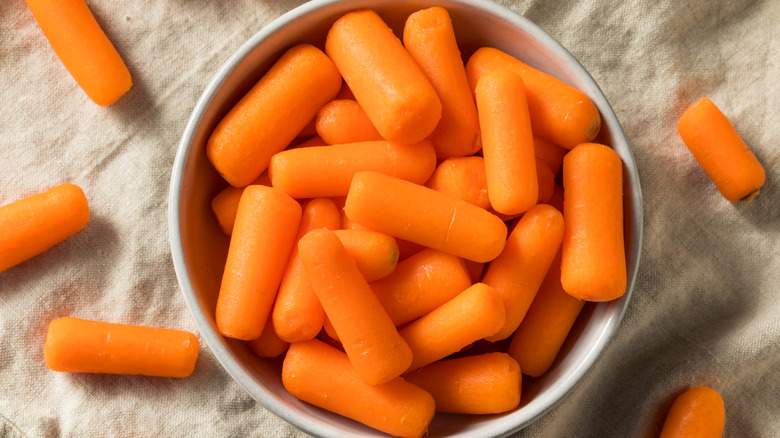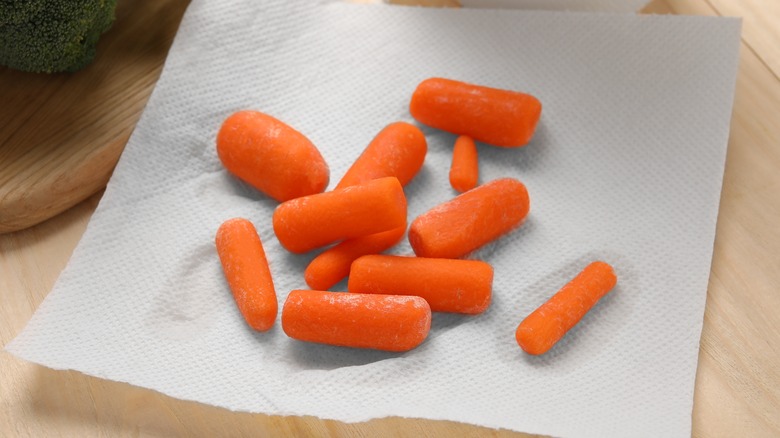The Ideal Way To Store Baby Carrots For Maximum Freshness
Baby carrots are a crunchy, healthy, dippable snack, and they're a household staple for many. Whether they find their way onto crudité platters, into children's lunches, or into a delicious baked buffalo carrots recipe, these petite veggies are both versatile and nutritious. But what's the ideal way to store them? First, it's important to understand that baby carrots are smaller, peeled versions of their adult counterparts. This means they're missing their protective skin and are more prone to drying out, which is why proper storage matters.
Typically, baby carrots come packaged in a sealed plastic bag that's slightly damp upon opening. This excess moisture is filtered tap water from the manufacturer that keeps the carrots moist during transit and storage. Once you've opened your bag of carrots, rinse them under cool water. From there, transfer all of them to a new container for refrigeration. This container can be glass or plastic but should always be airtight. Sealing your container between snacking will help retain the amount of moisture necessary to keep your carrots hydrated.
Alternatively, you can submerge your carrots in cool water for storage. While this method will preserve their freshness, it does require some additional maintenance; leaving them in liquid too long may lead to bacterial growth, so remember to swap out the water every couple of days.
How to know if your baby carrots are still fresh
Even if you've transferred your baby carrots from their original bag to a new container and stored them in the fridge, you may eventually notice that they've started turning white or have developed white spots. Before you panic and throw them in the trash, they haven't gone bad — this whiteness simply means that your baby carrots are starting to dry out, but they're still totally safe to eat. To rejuvenate them, either briefly soak them in water or add a damp paper towel to their storage container. Bear in mind, however, that there's a fine line between keeping your carrots moist and over-hydrating them, as the latter may result in rotting.
You'll know your carrots have truly gone bad when they emit a rotten smell or are covered in a sludgy, unappetizing film. While it's important to follow proper storage protocol to maximize your baby carrots' freshness, they're so snackable that you may find them flying out of your refrigerator as quickly as you prep them. If you can't get enough of these sweet, crunchy treats, here's some more info about baby carrots that you should know.

